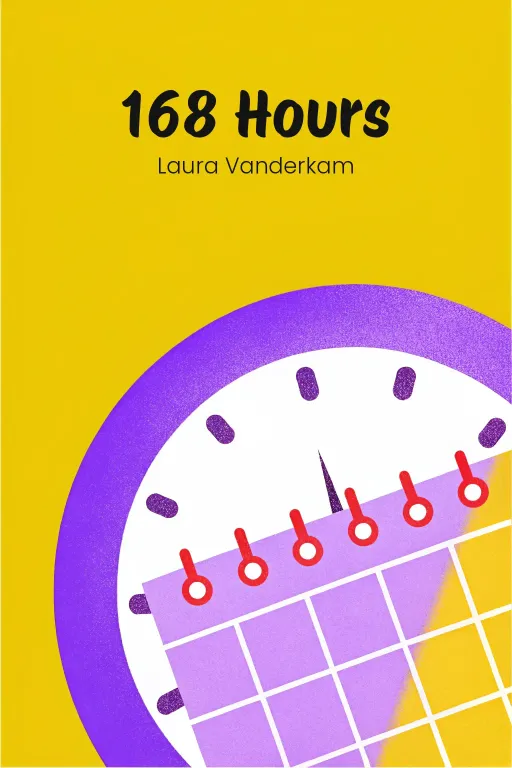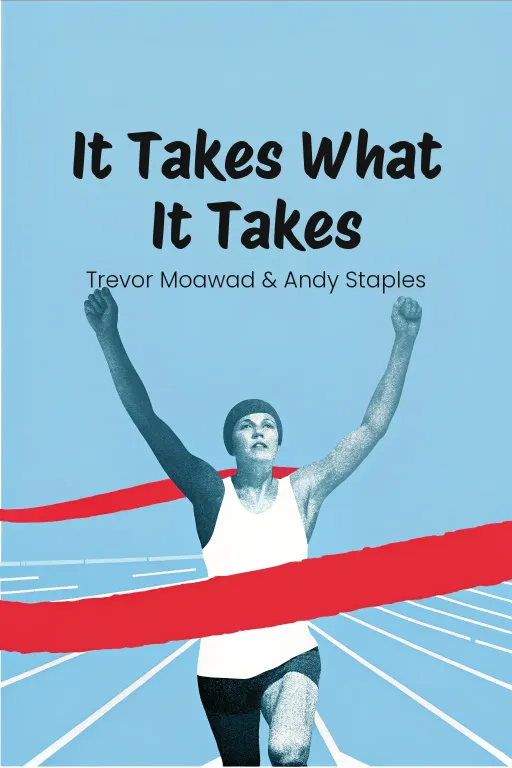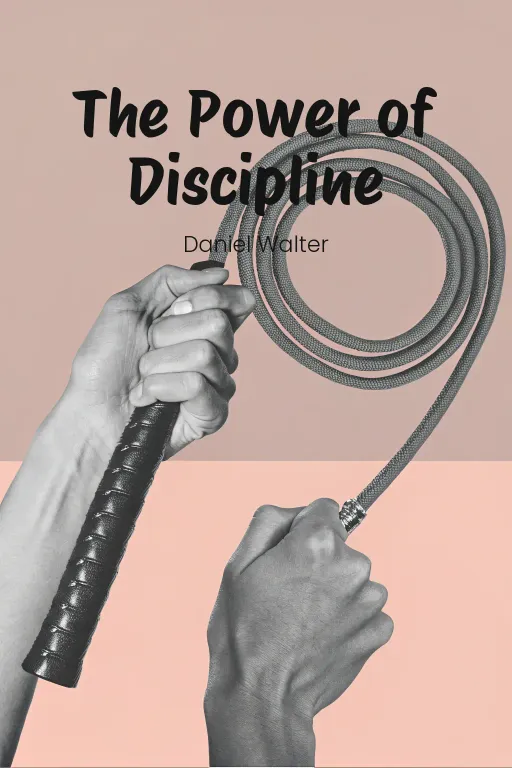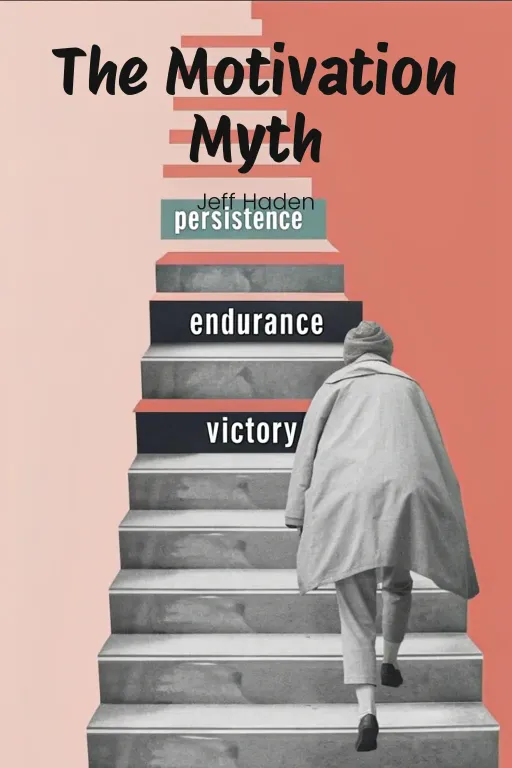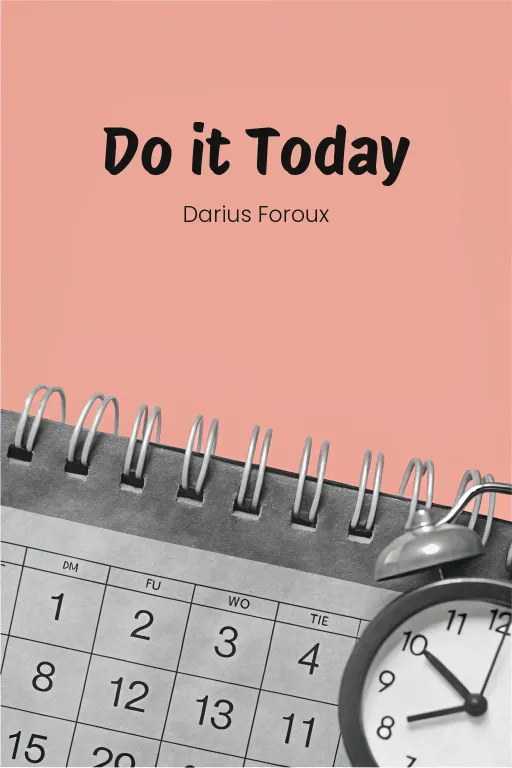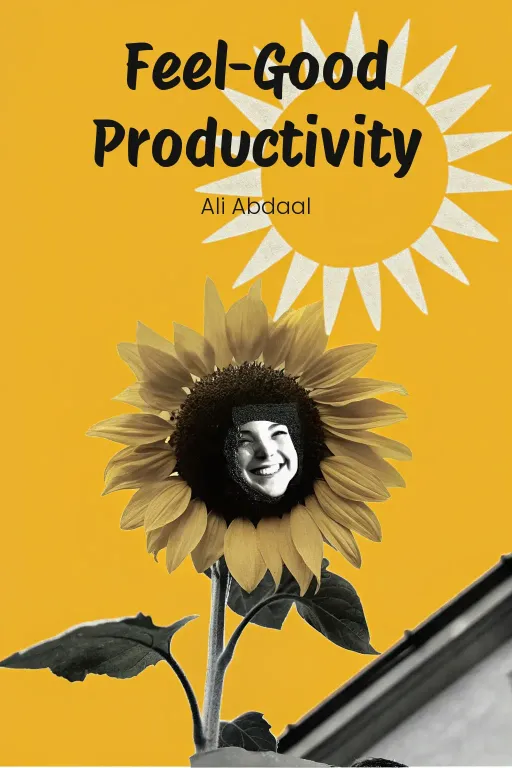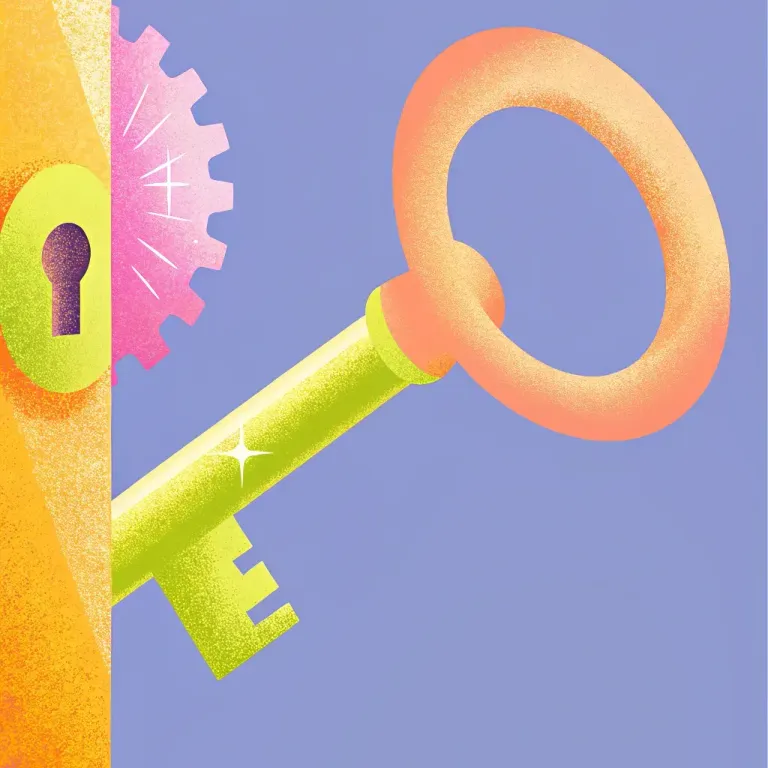
Master Your Brain, Master Your Life
Podcast by Beta You with Alex and Michelle
How to Use Self Control and Mental Toughness to Achieve Your Goals
Introduction
Part 1
Alex: Hey everyone, and welcome! Today we're tackling something we all struggle with: self-discipline. We've all been there, right? Promising ourselves we'll start a new habit, chase a goal, and then… nothing. But what if discipline isn't some innate superpower, but an actual skill you can learn and sharpen? Michelle: Okay, you've got my attention, Alex. Because let's face it, who doesn't want to stop hitting snooze or resist those late-night cravings? I'm always skeptical about these things, but I’m curious - is there some sort of secret sauce we're missing? Alex: Exactly! And that's what we’re exploring today, drawing insights from Daniel Walter’s The Power of Discipline. It’s a fascinating look at the science behind discipline, how it functions not just psychologically, but even biologically. Walter blends ideas from neuroscience, Zen philosophy, even the training of Shaolin monks to show us how discipline can “really” transform your life, not just your to-do list. Michelle: Zen monks and neuroscience? That's quite the mix. Alright, so what exactly are we going to unpack today? Alex: Okay, we're focusing on three main takeaways. First, we'll see how discipline is rooted in your brain and “really” is trainable. It's not just about "toughing it out." Second, we'll look at how discipline extends beyond just work, leading to tangible confidence, stronger relationships, and better emotional control. And finally, we're going to expose those sneaky traps that derail our best intentions and, of course, how to sidestep them. Michelle: In other words, we’re putting together a mental playbook, a step-by-step guide to help us move from dreaming to doing. Sounds like a challenge I'm willing to accept. Let's get started.
The Biological and Psychological Foundations of Self-Discipline
Part 2
Alex: Okay, so building on that, let's dive into the biological and psychological roots of self-discipline, because, Michelle, before we start throwing around strategies, it really helps to understand what's going on up there in that amazing brain of yours. Michelle: You're too kind, Alex. But if my brain is so amazing, why can't I just switch it off at midnight when Netflix is calling my name? Seriously, though, where does this whole discipline thing even start in the brain? Alex: Excellent question! It all starts with the prefrontal cortex. Think of it as the CEO of your mental operations—that area right behind your forehead. It's managing planning, decision-making, and, you guessed it, impulse control. Studies, like those by neuroscientists Todd Hare and Colin Camerer, show that the prefrontal cortex actually lights up when people choose to wait for a larger reward instead of grabbing something right away. Michelle: The CEO, huh? So you're saying my brain has a corner office that occasionally decides to call in sick when I reach for the cookie jar? Does this CEO get tired or something? Alex: Exactly! Willpower, or self-control, acts a bit like a battery. Psychologist Will Baumeister called this “ego depletion.” It basically means we use up our willpower throughout the day. He did this famous experiment where participants who had to resist eating cookies—while staring at them, I might add—gave up way sooner on a challenging task later on. Michelle: So let me get this straight. If I stare at a plate of brownies all day and bravely resist devouring every single one, then by evening, I'm basically destined to binge on potato chips? My brain seriously needs some energy management skills. Alex: Precisely! Willpower is finite. Think of it like a muscle—push it too hard with constant resistance, and it fatigues. That's why our environment is so important. Walter suggests that we should "hack" our environment instead of relying solely on willpower, keep things like those tempting brownies out of sight. Save your limited self-control for the really important decisions. Michelle: Right, so it’s not about waking up one morning and declaring, "Okay, I now possess ironclad discipline!" It's about conserving your energy for what truly matters. But wait... Back to the whole muscle analogy – you love that marshmallow experiment, and I know you're just itching to bring it up. Alex: You know me too well! The Stanford Marshmallow Experiment is classic psychology. Kids were given a choice: eat one marshmallow immediately or wait 15 minutes and get two. Some couldn't resist, of course, but the ones who waited showed greater success in life later on, they had higher test scores, they had better careers, even better relationships. Michelle: Okay, so are you saying my future success hinges on whether five-year-old me could handle his snack schedule? That seems like pretty high stakes for a preschooler. Alex: It does sound that way! But really the principles here are universal. Think about saving for retirement versus splurging on that luxury vacation. It's the same discipline muscle being flexed – delayed gratification. And the good news is, this isn't something you either have or you don’t. It's a skill you can absolutely cultivate. Michelle: Cultivate, huh? So that’s where the adult marshmallow test comes in, right? Walter talks about habit substitution – like replacing your go-to procrastination move, like scrolling endlessly on Instagram, with, say, ten minutes of focused work followed by a planned break. It's about really conditioning yourself toward productive behaviors. Alex: Exactly, those small steps build momentum. Walter emphasizes that discipline is a trainable skill. Just like adding weights at the gym, each small action—resisting a cookie, focusing for ten minutes—strengthens that self-discipline muscle. Over time, it creates a solid foundation for achieving bigger goals. Michelle: Okay, I'm with you, Alex. So, if we're talking about this "muscle" of willpower getting fatigued, does that mean it's smarter to focus on one area of discipline at a time? Like, should I fix my morning routine before tackling my diet, rather than, you know, trying to overhaul everything all at once? Alex: That's a brilliant point to bring up! Yes, focusing on a single area allows for greater success because it doesn't overload the prefrontal cortex. Walter suggests beginning with things closest to your daily routine—something simple, like pre-planning your meals or setting a consistent bedtime and it can snowball into many other areas later on. Momentum fuels more momentum! Michelle: Right, prioritize, start small, and build that snowball. Okay, here's my takeaway: discipline doesn't suddenly appear in some profound moment of transformation. It clicks when your brain quietly decides to compete with yesterday's version of you. And, a little environmental re-engineering never hurts. Alex: I couldn’t agree more, Michelle! Understanding the biological and psychological framework of discipline gives us the clarity to work smarter, not harder. It’s not about perfection – just continual progress.
The Benefits and Practical Applications of Self-Discipline
Part 3
Alex: Okay, so we've covered what self-discipline “is” and how it works in the brain. Now, let's dive into what it “does”, because that’s the really exciting part, right? It’s not just some abstract idea; it has real, tangible benefits in your life. We're talking relationships, habits, even how you see yourself, Michelle! Michelle: Ah, so we're shifting from the "why" to the "so what?" I’m ready. What kind of magic are we talking about here? Is it going to transform me into a zen master, or just help me resist those late-night pizza ads? Alex: A little of both, actually! Let’s start with self-confidence. When you consistently practice self-discipline, you prove to yourself that you can commit to something and actually follow through. It builds this incredible inner trust, that feeling of, “Hey, I’ve got this!” And that confidence, it really does affect how you carry yourself and interact with people. Michelle: Right, so if I master the art of saying "no" to that second donut, I’ll suddenly project CEO vibes in my next meeting? That sounds suspiciously like those get-rich-quick schemes... Alex: <Laughs> Well, think about someone trying to lose weight. They start with small, manageable changes – regular exercise, cutting back on sugary drinks, and as they see progress, it's not just about the scale, it's that sense of accomplishment That fuels them! They start believing they can achieve their goals, and that confidence just kind of bleeds into other areas of their lives – work, personal ambitions, relationships. Michelle: And people pick up on that, don't they? I mean, confidence is like a good cologne; you can't always put your finger on it, but you're definitely drawn to it. Alex: Exactly. Imagine a parent juggling work, finances, family – all while sticking to their personal goals, as well. That kind of discipline sets an example for their kids and builds a sense of reliability within the family. It’s a really powerful thing. Michelle: Okay, I get that. So, what happens when someone “lacks” discipline? We've all met those people who can’t seem to follow through. How does that impact their relationships? Alex: It often leads to inconsistency, which can cause friction and disappointment in close relationships. Imagine a friend who constantly cancels plans at the last minute. That erodes trust, bit by bit. But if you’re disciplined in how you manage your time and commitments, people know they can rely on you, and that strengthens those bonds. Michelle: Got it. So, self-confidence and stronger relationships are on the plus side. What’s next – does self-discipline act as a shield against self-sabotage? Alex: Absolutely! Discipline is a powerful tool against impulsive behaviors. Think about it: we’re bombarded with temptations all day long—junk food ads, impulse purchases just a click away, endless distractions online. Without discipline, it's so easy to make those choices that feel good in the moment but have negative consequences down the road. Michelle: Tell me about it. It's not just the temptations, it’s the environment. Free shipping? “Add to cart!” Junk food ads at midnight? Disaster. Alex: It's a constant battle, for sure. But discipline gives you that inner "pause" button, that ability to resist those immediate urges. Walter's research mentions a study that showed disciplined students were far less likely to binge drink or engage in other risky behaviors compared to their peers. Michelle: So, they skipped the keg party and hit the books, huh? Talk about willpower! Alex: That's one way to put it! The point is, the benefits compound over time. Someone like Nathan, who studies instead of partying in college, might not see the immediate reward. But those choices lead to better grades, better health, and better career opportunities. Peers who constantly give in to those impulsive behaviors often face setbacks. Michelle: It's not just about saying "no" in the heat of the moment, but about saying “yes” to your long-term vision. Resisting feels brutal, though. What's the secret weapon here? Alex: Glad you asked! Mindfulness can really help, specifically a technique called "urge surfing". Whether it’s a craving for junk food or that shiny new gadget you don't need—the urges are like waves. They rise, peak, and eventually subside. You don't react immediately, instead you observe the urge as if you’re a surfer riding the wave calmly until it passes. Michelle: So, I just sit there and “feel” the discomfort of not eating that cake until it magically vanishes? That sounds… unpleasant, but strangely, it does make sense. Alex: It works because it literally changes how your brain handles cravings. Think smoker trying to quit—when an urge hits, they practice breathing exercises and mentally observe the craving. With time, the cravings become less frequent and intense. It’s about patience and curiosity, not just pure repression. Michelle: Alright, so relationships, impulsive shields, and mindfulness—all packed into this self-discipline package. Now, what about pushing past your physical or mental limits? You mentioned the Navy SEALs earlier and their 40% Rule. Alex: Right, let's dive into that! The 40% Rule is that when you feel like you've hit a wall, physically or mentally, you've actually only tapped into about 40% of your actual capacity. The key is to challenge those perceived limitations and push a little further to unlock your potential. Michelle: So, it's like being halfway up a mountain, thinking you're completely exhausted, and then realizing you've got a hidden reserve tank? Alex: Exactly. A beginner doing pushups is a perfect example. They might think they're completely done after ten reps. Applying the 40% Rule, they pause, take a breath, and squeeze out two more reps. It's not just about physical strength. It’s training your mind to build resilience and challenge assumptions about your capabilities. Michelle: I can see how that could apply in all sorts of situations. Like, when I'm playing a squash match and I'm convinced my opponent is about to crush me, I can remind myself, hey, I’m not at 100% yet. I’ve still got some gas left. Alex: Exactly! And when you combine that with mindfulness techniques like urge surfing, you've built a powerful toolkit that's not only about pushing harder but also about gaining a deeper understanding of yourself. Self-discipline becomes less about painful willpower and more about transforming your limitations into opportunities. Michelle: Well, Alex, I’m impressed. Self-discipline isn’t just some joyless act of self-denial but kind of a turbo boost for your confidence, relationships, decision-making, even your sense of what’s possible!
Overcoming Barriers and Sustaining Long-Term Success
Part 4
Alex: So, with all these advantages and strategies we've covered, we really need to dig into those common psychological barriers that trip us up when we're trying to build self-discipline, and more importantly, how we can actually overcome them. I'm talking about things like the status quo bias—that super strong pull we feel to just stick with what we already know—and the Dunning-Kruger Effect, which can make us either overestimate or underestimate our own skills. Overcoming these barriers, Michelle, it's not just about tackling those little day-to-day problems, it's really about setting ourselves up for lasting success. By focusing on both these roadblocks and the long-term strategies, we just create a much more complete, holistic, you know, path—from getting that initial understanding to building real, lasting change. Michelle: Okay, so now we're getting to the juicy stuff—the psychological traps we set for ourselves. Alex, why is it so darn hard to escape them? Like, just knowing I'm stuck in bad habits doesn't magically make them disappear. What gives? Alex: Well, that's what makes it so interesting, and also challenging, right? Let's start with the status quo bias. It's basically our brain whispering in our ear, “Hey, stick with what you know. It's safe here.” But "safe" doesn't always mean "good," does it? This bias often comes from being afraid of the unknown or feeling really attached to things we've invested in already, like time or effort. Think about the sunk cost fallacy: if you've spent years in a job you don't even like, it's hard to leave because, well, you've put so much into it. There's that little voice in your head saying, “What if I fail if I start over?” Michelle: So, you're saying my brain's a super-cautious accountant, tracking my "emotional investments". But how do you convince someone to let go of the past and take a chance on something new when they're scared they'll regret it? Alex: Well, it starts by just changing how you see it. Instead of thinking about what you might lose, try focusing on what you could gain. Walter suggests making a list of the real risks of staying where you are versus the possible benefits of making a change. When you realize that staying put also has its own risks—like not growing or evolving—it can be the thing that pushes you to actually do something. Michelle: So, if I'm clinging to my imaginary dead-end job, I'm just trading short-term comfort for long-term unhappiness. Ouch, but probably true. And what about the other thing you mentioned? This Dunning-Kruger Effect—are you saying we're held back because we can't judge ourselves properly? Alex: Exactly. It's a double-edged sword: either you think you're better than you are and get stuck in complacency, or you don't think you're good enough and get paralyzed by self-doubt. Think of a new entrepreneur who thinks they know everything, ignores advice, and then wonders why their business fails. Or, you know, on the flip side, a really experienced expert who's dealing with imposter syndrome, questioning everything even though they're totally qualified. Michelle: That's a lose-lose situation. So, what's the fix? Just pat yourself on the back and say some nice things? Alex: Not quite. It's about building self-awareness. Regularly reflecting on yourself, being open to feedback, and finding a mentor can help bridge that gap. Walter uses the example of mentoring—imagine that entrepreneur getting regular feedback from experienced advisors. That way, they can spot those blind spots they didn't even know they had. And the person struggling with imposter syndrome can start believing in themselves when someone else confirms their expertise. Michelle: Okay, so a little humility and some curiosity can go a long way. But all this talk of mental traps and reframing—what about actual practical things? Where do things like "systems over goals" fit in? Alex: That's the next piece. Systems are great at breaking down those barriers because they shift your attention away from specific outcomes and onto actions you can repeat. Goals are fine for getting started, but they're often short-lived. You see it all the time: someone hits a big goal, like running a marathon, and then they're like, "Now what?" Michelle: Right, they get that high from crossing the finish line, but then they crash because they don't have a plan for what's next. So, what's the systems approach here? Alex: Systems are about consistently doing the things that will make success inevitable. So, instead of saying, “I want to write a book,”, you set up a daily writing schedule — a thousand words every morning, no excuses. Or, say you’re a student with a big exam coming up. Instead of just focusing on the test date, form a study system — two hours a day, past papers every weekend, group discussion in the middle of the week. Systems basically create the structure for consistent effort. Michelle: Right, like the Navy SEALs you mentioned earlier. They're not obsessing over conquering missions; they're just constantly training until resilience becomes automatic. And their 40% Rule—the idea that when you think you're done, you've only used 40% of your capacity—that's pretty powerful stuff. Alex: Exactly. And that rule isn't just about physical limits, it's mental too. Systems push you to test your limits, whatever you think they are. Whether it's an athlete pushing past exhaustion or a professional taking on a challenging project, systems remind you that growth happens when you step outside your comfort zone. Michelle: Okay, I get it: systems over goals. But how do we stay disciplined enough to keep those systems running? Because let's face it, humans aren't exactly known for sticking to routines. Alex: That leads us to identity transformation. And this is where things get really interesting. Lasting success isn't about always being motivated; it's about becoming the kind of person who naturally does those things. It's the difference between saying, "I want to exercise" and saying, "I'm the kind of person who doesn't skip workouts because fitness is part of who I am." It's about making your habits match how you see yourself. Michelle: So instead of forcing yourself to go to the gym, you tell yourself, "Hey, this is just what people like me do." Interesting. Got an example of someone making this switch? Alex: For sure. Think about someone trying to be healthier—not just lose weight, but make real changes that last. Instead of only focusing on a number on the scale, they start seeing themselves as someone who values health. They start choosing water over soda or cooking healthy meals because that's just "their thing." It's not a chore anymore; it's just who they are. Michelle: I see the light now. It kind of reminds me of how Warren Buffett operates. He doesn't read for six hours a day because it's on his to-do list; he does it because, in his mind, he's a reader, a learner. It's part of who he is, not just something to check off. Alex: Exactly. And when you pair that with small wins—like ticking off every healthy meal you eat or every reading session you finish—you're reinforcing that identity bit by bit. It's a positive cycle: your actions confirm your identity, and your identity fuels your actions. Michelle: I like where this is going. It sounds organic, almost effortless. But what about keeping it going in the long run? This Zen philosophy Walter mentions—does it really work, or is it just for monks meditating in caves? Alex: Oh, it absolutely works! Zen helps you stay consistent by focusing on balance and being present. It's not about being disciplined just for the sake of it, but about paying attention and accepting things as they are. Practices like meditation help you clarify what's important, reduce how you react emotionally, and keep you centered. And when life throws you curveballs—because it will—that centeredness helps you stay on track. Michelle: So you're not just pushing through with willpower; you're tapping into clarity and focus. Sounds like it would work really well with systems and identity. So, it’s the combination of effort and rest, just like the legendary Shaolin monks? Alex: Exactly. Their focus is on rigorous training, but it's also grounded in gratitude and self-awareness. It's a reminder that lasting discipline isn't just about working harder but about bringing mindfulness and compassion into your consistent effort. Michelle: Alright, Alex, we’ve tackled barriers, busted myths, and built a sustainable framework with psychology, systems, identity, and even Zen philosophy. If this doesn’t inspire long-term growth, I don’t know what will.
Conclusion
Part 5
Alex: Wow, Michelle, what an incredible deep dive we've taken into the world of self-discipline! I mean, we've explored everything from its roots in neuroscience and psychology, to how it builds our confidence, strengthens relationships, and even protects us from those oh-so-tempting impulsive decisions. And let's not forget about practical tools like the 40% Rule, urge surfing, and the amazing power of systems and identity-based habits. Michelle: It really is mind-blowing, isn't it? To think that discipline isn’t just about gritting your teeth and “toughing it out,” but about actually understanding how our brains work. It's about working smarter with systems, and fundamentally shifting how we see ourselves. And then, you pair all of that with Zen philosophy to help stay balanced... Well, you've got yourself a masterclass in personal transformation. Alex: Exactly! And here’s the big takeaway for everyone: discipline is a skill, not some fixed personality trait you’re born with or without. It's something you can develop. So, start small, hack your environment to make it easier, and really focus on your identity—on becoming the kind of person who naturally does the things that lead to growth. Remember, it’s all about making sustainable progress, not aiming for some impossible standard of perfection. Michelle: Okay, listeners, I think the challenge is officially on. How about taking one small step today? Maybe set up a simple system to help you with a goal, test out the 10-Minute Rule when you’re feeling unmotivated, or even just tweak your surroundings to reduce distractions. Whatever it is, start building that momentum and proving to yourself that you really can flex that self-discipline muscle. Alex: Yes! Progress really does begin with presence—so be mindful of what you're doing, stay consistent with your efforts, and trust the process. Self-discipline isn’t about making life magically easier; it’s about you growing stronger, more resilient, and more capable. Michelle: And with that, here’s to kicking that status quo bias to the curb and really unleashing your potential. Go crush it, everyone!


